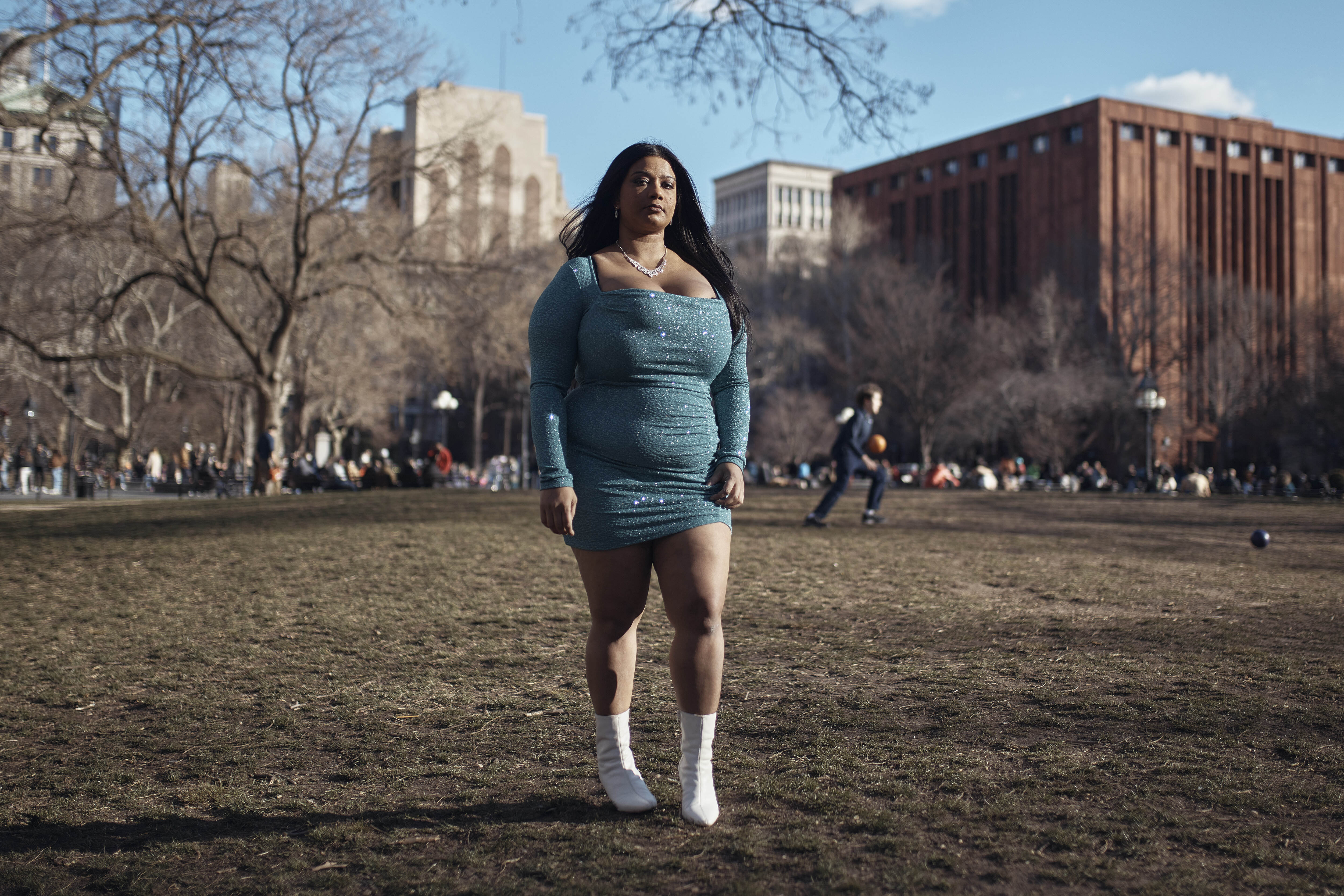A 22-year-old Long Island man has been sentenced to six months in jail and must register as a sex offender for taking photos from social media accounts of nearly a dozen women when they were in high and middle school, altering them to make them sexually explicit and then posting them on a porn website for years, prosecutors say.
Patrick Carey, who was posting the fake images up to within hours of his 2021 arrest, also shared the women's personal identifying information, including full names, phone numbers and addresses -- and encouraged other users on the porn site to harass and threaten them with violence, according to court documents.
Carey pleaded guilty in December to multiple felonies in the deepfake scheme, including promoting a sexual performance by a child, aggravated harassment as a hate crime and stalking.
At Tuesday's sentencing, the Seaford man was ordered to stay away from each of the 11 victims -- a judge issued orders of protection lasting the statutory eight years maximum each. He will also be subject to 10 years of probation on top of the jail time and sex offender requirements.
Carey didn't address the media after the hearing, but said in court "I can’t chalk up my awful behavior to being a young dumb kid." He also apologized to the victims and their families, though added he didn't expect forgiveness.
According to the 2021 indictment, roughly 11 women contacted Nassau County detectives between January and September of that year to report they had found images of themselves on a pornographic website. Many of the women indicated that the images, taken when they were in high school and middle school, were re-posted on the website from their own social media platforms and altered to suggest they were engaging in sexual conduct.
Get Tri-state area news delivered to your inbox.> Sign up for NBC New York's News Headlines newsletter.
The images had been altered in what is otherwise known as a "deepfake," a technology whereby Carey convincingly superimposed the victims' faces on other, separate images of women engaging in sexual conduct. Those posted images were accompanied by their full names, addresses and phone numbers, among other identifying information.
Separately, in November 2020, another woman reported to the Nassau County Police Department's Special Victims Squad that she found a sexually explicit image of herself, taken when she was underage, on the same porn website.
"The depravity on display by this defendant truly makes my skin crawl," Nassau County District Attorney Anne Donnelly said.
Each of the women had attended MacArthur High School in Levittown and believed that Carey, another former student, was the individual who was altering and posting their images and contact information. Several reported to police that they had received notifications from social media that Carey had "screenshotted" some of the images that appeared altered on the website from their social media accounts.
Most of the posts with images of the victims came from three distinct usernames controlled by Carey, prosecutors said. He was actively posting the images from roughly August 2019 until his arrest in September 2021.
"Patrick Carey targeted these women, altering images he took from their social media accounts and the accounts of their family members and manipulating them using 'deepfake' technology to create pornography that he disseminated across the Internet," DA Donnelly said in a statement Tuesday.
"These incredibly brave women pieced together his depraved conduct and brought it to the authorities. They were not afraid, and they were undeterred," she added. "Now, Carey will serve jail time and undergo rigorous monitoring for the next 10 years once he is released."
In court, a victim gave an impact statement on behalf of all those who Carey targeted. Looking in Carey’s direction, she said, "your name will forever give me nightmares and haunt me," and continued, "At least I’m strong enough to tell you to your face: You make me sick."
The parents of some victims were not happy about the judge's six-month sentence, with one father saying "I hope he gets forgiveness from the higher power, because it’s a horrible thing he did."
Donnelly said the only reason Carey is serving any time whatsoever is because investigators found the single image of an underage girl he used in one of the explicit deepfakes. That means that the other deepfake content he created, all of which was clearly explicit and outrageous, didn't technically break any laws.
It may be one reason the sentence was considered "light": New York state currently has no criminal statutes addressing "deepfaked" or digitally manipulated sexually explicit images, which Donnelly called a significant loophole easily exploitable by child pornographers.
She has proposed legislation to establish a number of felony and misdemeanor crimes related to deepfakes to deter such behavior, making it a felony charge and punishable by up to seven years in prison if convicted.
"New York State currently lacks the adequate criminal statutes to protect victims of ‘deepfake’ pornography, both adults and children," Donnelly said. "That is why I am proposing the legislature take up the ‘Digital Manipulation Protection Act,’ that would close the loopholes in the law that allow sexual predators and child pornographers to create sexually explicit digitally manipulated images and evade prosecution."
What Are 'Deepfakes'
A “deepfake” is a video, audio or image that uses machine learning to create a convincing imitation of a real person’s likeness or voice. While some deepfakes can be innocuous, they have also been used for revenge porn, fake news and fraud.
In another 2021 case, a Pennsylvania mom was accused of creating deepfake videos and photos of underage girls on her daughter’s cheer squad in a prolonged effort to harass them and get them kicked off the team.
Tom Cruise became a target on TikTok as well around the same time.
Developers have raced to better understand and track deepfakes to avoid spreading misinformation. In June, AI researchers at Facebook and Michigan State University say they have developed software that can reveal where deepfakes have come from.




